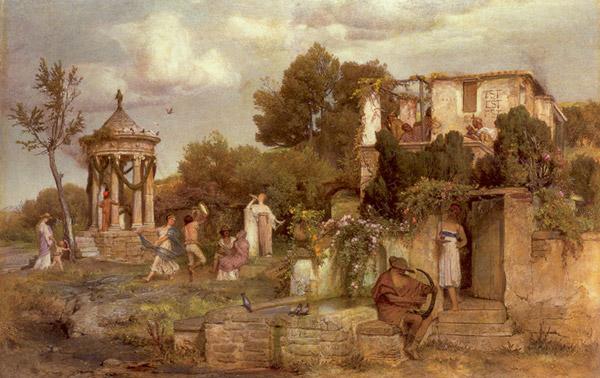784
Romans was warmer than we thought

They say, in the north of England by the Romans grew grapes ...
No wonder: a new study has shown that in those days there was a lot warmer than assumed.
Typically, the temperature reconstruction spanning several centuries, based on tree rings: the warmer the summer, the wider the ring. On this basis, it is assumed that for the last two thousand years the climate has changed very little. Widely known chart "hockey stick", built by Michael Mann of Pennsylvania State University (USA): a thousand years, the temperature has remained more or less stable, and with the beginning of the XX century sharply crept up.
Jan Esper of the Johannes Gutenberg University (Germany) believes that the annual rings should look a bit different. Industrial Revolution was preceded by not "normal" climate and long-term cooling, caused by a decrease in solar radiation received by us as a result of changes in the Earth's orbit (Milankovitch cycles). If we take this into account, the Roman world was at 0, 6 ˚C warmer than assumed. And then the vineyards in the north of England are possible.
Mr. Esper and his colleagues note that warm summer does not necessarily make a wider ring. Sometimes it causes densification ring. So, the analysis of the density of tree rings hundreds of Scottish showed that about 2 thousand. Years ago a gradual cooling of Northern Europe.
By the way, about the same say and the chemical composition of the air trapped in glaciers, and organic remains in lake sediments. Frankly, a number of studies have recently shown that in this era of climate was not so stable. For example, in 2009, Darrell Kaufman of Northern Arizona University (USA) on the basis of several sources have come to the conclusion that the Arctic was cooling throughout the two thousand years. Mr. Esper showed that cooling was even stronger. According to him, the man with their greenhouse gases prevent the inevitable ice age.
Mr. Mann is willing to argue with a colleague. The new study covered only the high latitude and reflected a summer temperatures.
The results are published in the journal Nature Climate Change.
Frightening caterpillars eat less, but grow faster nepuganyh
The fish found magnetically sensitive cells























